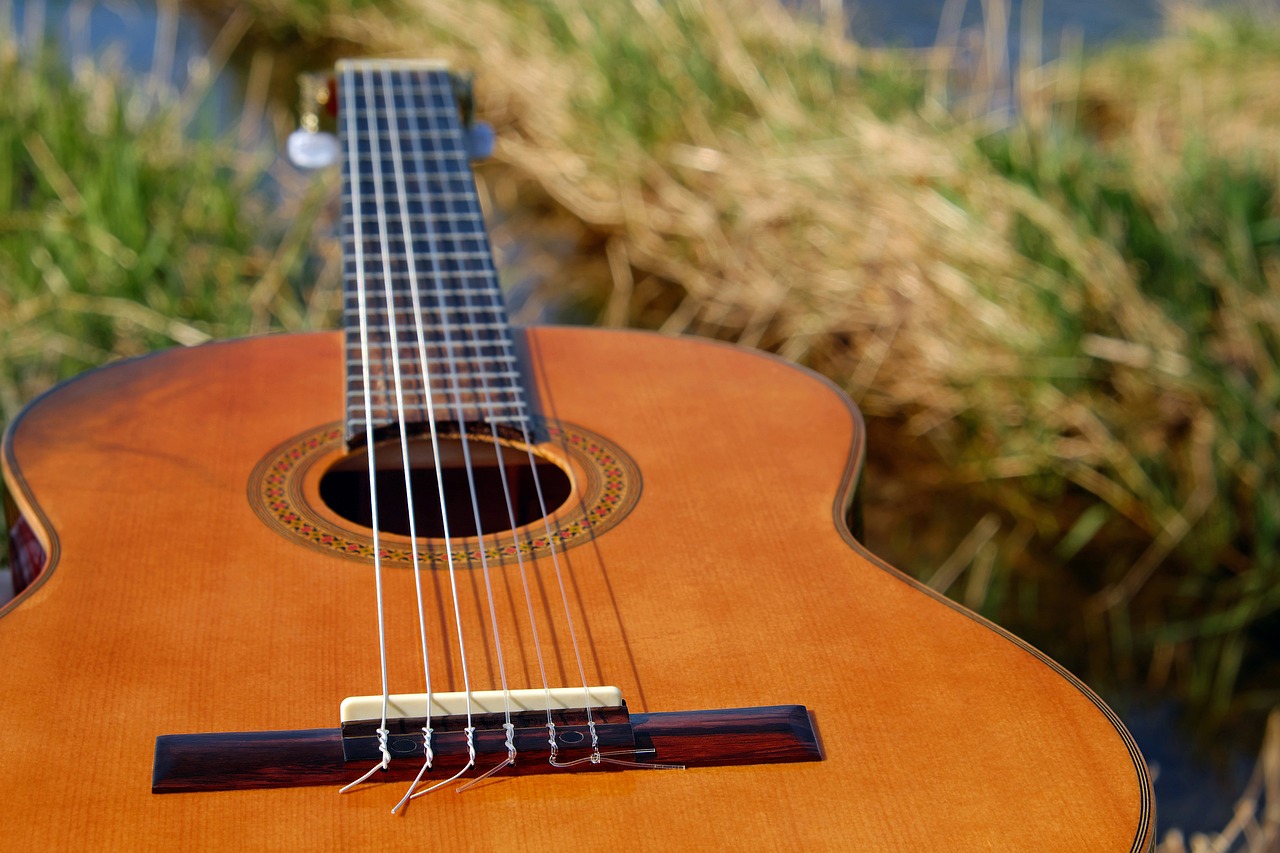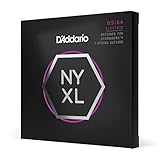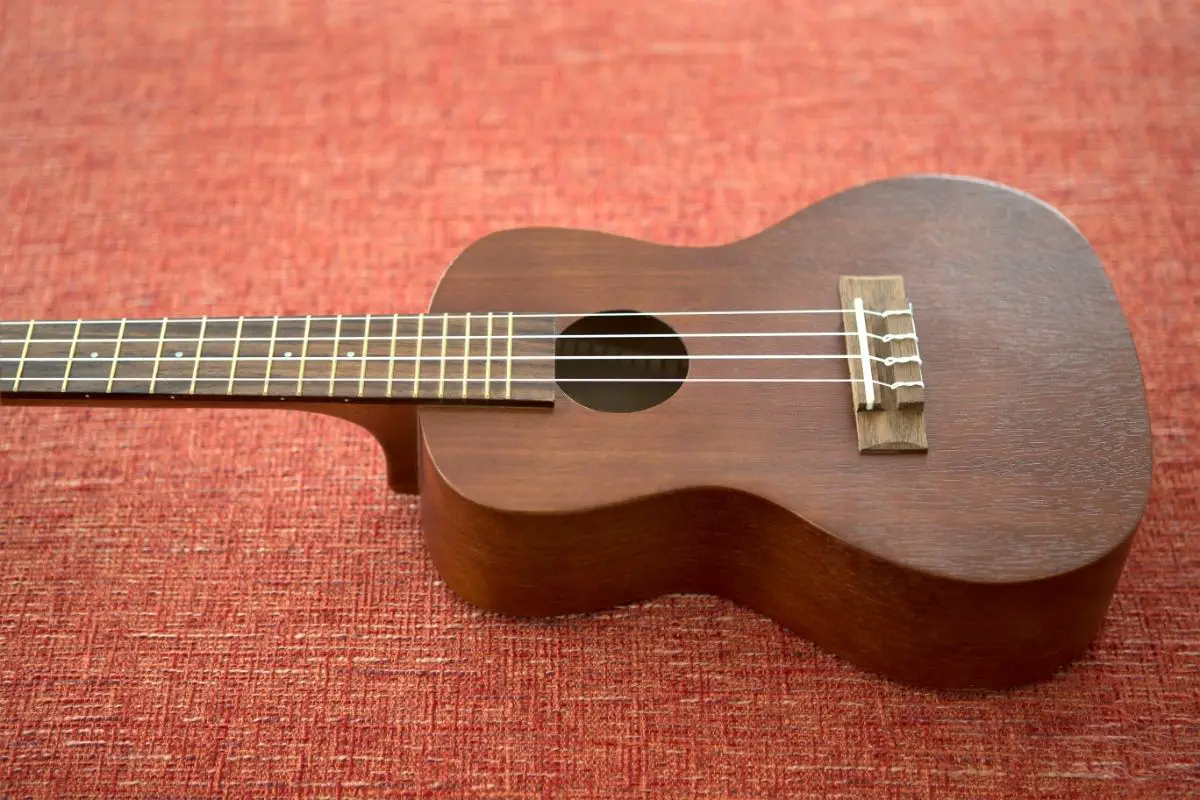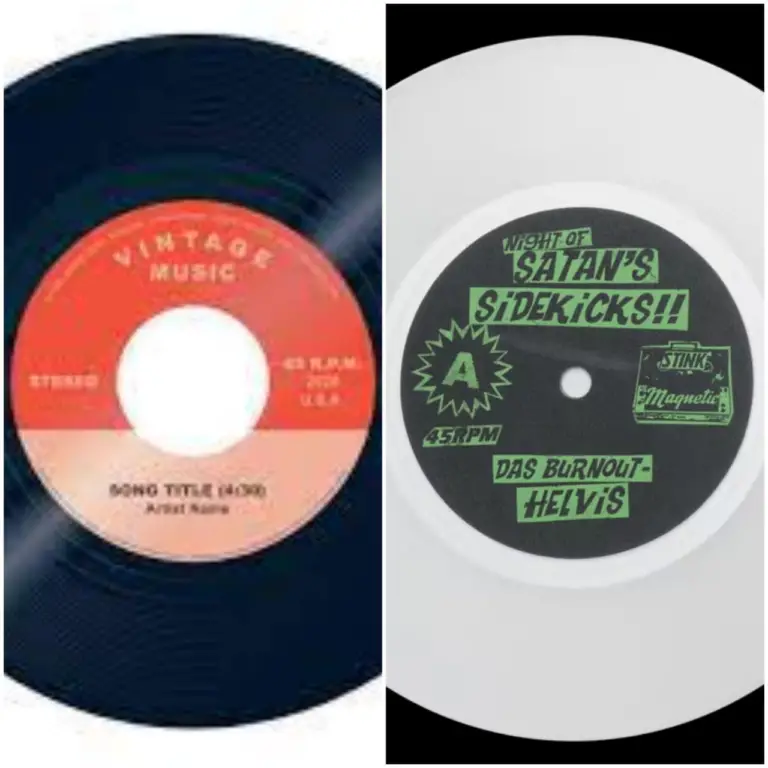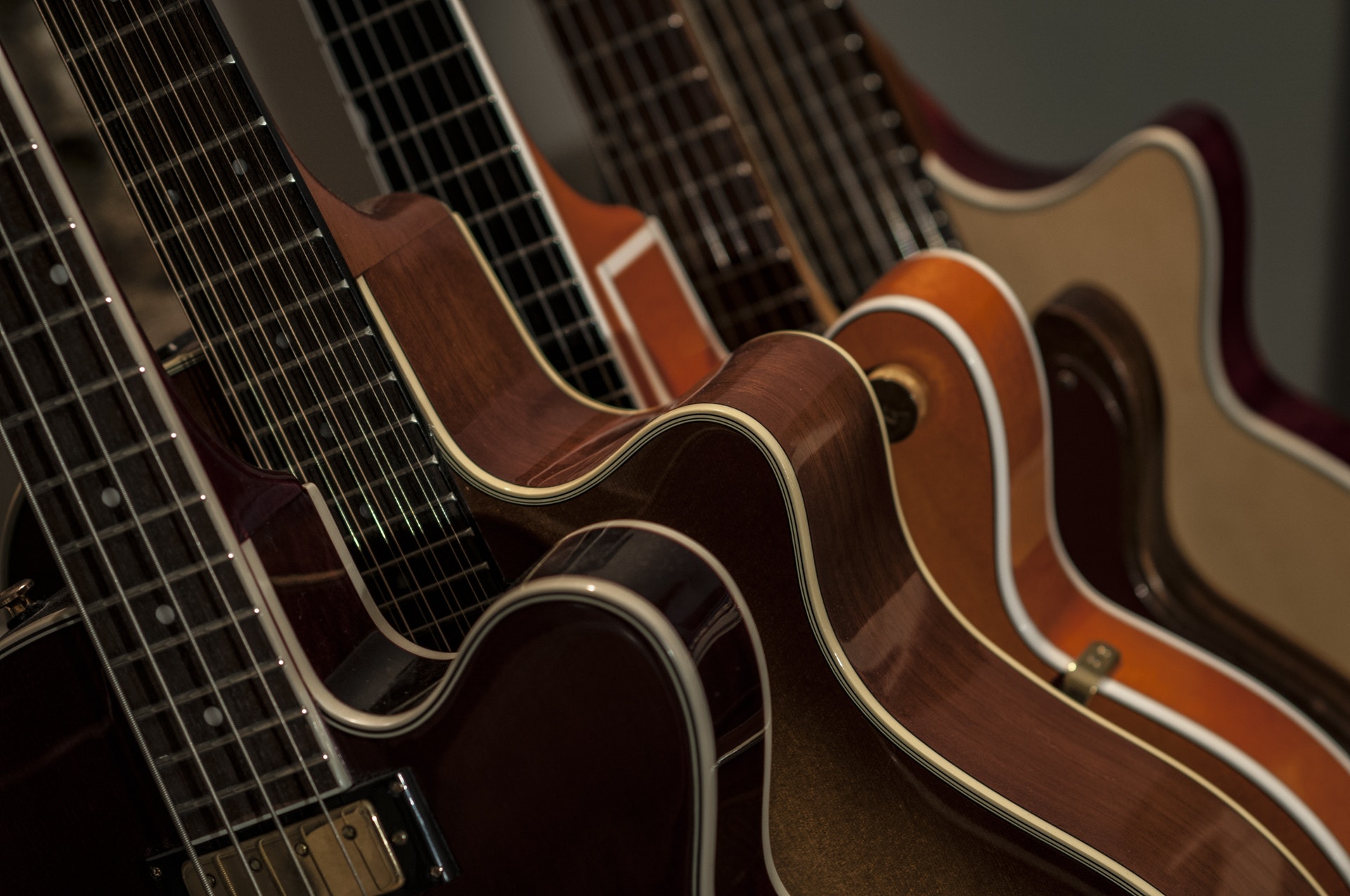How Long Do Guitar Strings Last?
Guitar strings are one of the most important elements to replace on a guitar occasionally, but how do you know when your strings are past their best, and how long do they last?
Guitar strings generally last three months, but their longevity greatly depends on the quality of the strings you get and how often you use them. Replacing your strings regularly ensures the best sound and performance from your guitar.
Understanding how, when, and why you should change your guitar strings is important to becoming a practiced musician. This article will cover how long guitar strings last and when to replace them.
What Causes Guitar Strings To Deteriorate?
Guitar strings are designed to reverberate when plucked or strummed, creating the resonant tone we associate with guitar music. Strings, like all things, will eventually start to deteriorate and lose the quality of their tone, affecting the way the guitar sounds, the action on the guitar, and the playing experience.
Guitar strings will lose tone after about 3 months due to the tension and the oils on the musician’s skin. You’ll need to replace them more often if you play a lot, and you can probably get away with fewer guitar string changes if you play infrequently.
How Long Do Guitar Strings Last in the Package?
Guitar strings have a sell-by date (like produce) on the package. This doesn’t mean your strings expire, but the music shop needs to eliminate them.
Like other sell-by dates, this doesn’t mean the strings are bad. Strings can last up to five years if stored properly (which we will revisit).
Can You Play Old Strings?
You can choose to play old strings if you want. But you might want to avoid this if you play an electric guitar.
Electric guitars with “dead” strings sound terrible. So when the amplifier increases your sound, that terribleness will become louder.
If your strings are corroded, that corrosion could also spread to other parts of the guitar. This will require extra cleaning and work.
What Causes Guitar Strings To Break Faster?
Want to avoid situations that break your strings? Here are common causes that lead to faster breakage:
Daily Use
The more you use your guitar, the more you use the strings. Naturally, this means your strings will break faster.
With regular, daily practices, strings won’t last longer than 90 days (three months). With cheaper strings, it might not last two months.
Not Cleaning Your Strings (or Hands)
When you don’t clean your strings after using them, the oil from your hands lingers on those strings. This eats away at the string’s natural protective coating.
When you clean your strings, it removes oil that naturally eats away over time. You can also pre-empt this cleaning by washing your hands and using hand sanitizer to remove the natural oils.
Also, avoid touching your face while playing to re-coat your hands in these skin oils. Be mindful of your actions.
Whether You are Playing Live
When you play live music in front of an audience, you tend to get a bit more “wild.” This means getting rough with your strings and stretching them out a bit.
If you play light acoustic music, this might not apply to you as often. But if the music gets passionate, so might your fingerwork.
This means the more interesting and unique things you try, the more you strain your strings.
Choosing Good Brands
If the current strings you use are from a lesser-known brand, they might not have the same quality manufacturing processes as Ernie Ball. So, when picking strings, stick to a good brand.
Music stores tend to stick with better brands. If you are looking for solid strings, ask the attendant, who should naturally ask you questions about what you play. From there, they can make a suggestion that fits your needs and budget. String quality and brand quality are directly related.
Where You Store Them
When it comes to unused strings, they tend to last longer than used strings. But, these strings can wear out, even if you don’t use them.
The natural aging of the protective coating causes them to lose their flexibility. Think of a piece of bread after leaving it on the counter for a day. It’s probably not going to be edible (or pliable).
When it comes to strings, store them where you should store your other musical instruments: in a cool dry place that isn’t attacked by direct sunlight. Humid warm places can affect the string’s surface, leading to the coating coming off as they wait desperately for usage.
Nylon strings are more likely to deteriorate in these environments than steel strings. But, steel strings can corrode, which is something that potentially spreads throughout the electric components of your guitar, ruining it completely.
String Types Sorted By Durability
Many different string types vary by performance and durability of your strings. How they affect your sound is a whole world of complexity worth exploring if you want your guitar to have a particular resonance.
Coated Strings – Most Durable
Lastly, coated strings are more of a luxury string, providing a protective coating to prevent wear and tear. Not only does this feature improve coated strings’ durability, but it also makes them easier to clean.
Flatwound Strings – Pretty Durable
Flatwound strings are usually more durable than roundwound strings. The design prevents the dirt and oil from your skin from accumulating on the strings and wearing them down as quickly.
The sound isn’t as bright as roundwound strings, but it’s worth considering if durability is your main focus.
Roundwound Strings – Fairly Durable
The most common type of strings, roundwounds, generally last 3 months before you notice their performance suffer. Again, in each of these categories, the brand qualities play into the longevity of the strings, but you’ll usually want to think about a replacement after hitting the three-month mark.
Nylon vs Steel Strings – Which Last Longer
Because nylon strings are softer and produce tones that match this softness. You might naturally think that soft means short, but nylon lasts longer than steel among guitar strings.
This is because nylon is made of more pliable material. Since the primary use of guitar strings is how stretchy they are, nylon performs better than steel.
This doesn’t take away from the usefulness of the two different string types. Steel strings create a punchier sound while nylon strings are brighter. So, buy strings based on your tone preferences, not their material.
String Gauge
Gauge is a measurement of the thickness of the string. It affects the warmth and volume of the tone. Thicker strings are more durable and will give you a warmer tone with more volume.
Thinner strings, on the other hand, are generally brighter and easier to play. Thicker gauge strings typically produce more sustain, so if you desire optimal sustain, you may want to test a thicker set.
Different Types of String Gauge
It is recommended to stick with pre-packaged string gauges when experimenting, as they provide a balanced feel, tone, and neck tension. If you prefer a heavier 4th string, for example, you can gradually move up in gauge size.
Changing gauges may also require adjustments to the neck or bridge. Don’t try to do this yourself if you don’t know what you’re doing. Got it?
If you are using 10-46 strings and find them difficult to bend or press down on the fretboard, then you can go down a step to 9-42 gauge strings. When choosing a string gauge for standard tuning, consider the techniques you may use, like bending notes and vibrato.
If you intend to use these techniques regularly, it’s best to avoid a gauge that creates excessive tension. The 10-46 set is the most widely used among guitarists due to its balanced tension, making it easy to perform bends and maintain tuning stability.
When Should I Replace My Strings?
At the end of the day, when you choose to replace your strings is up to you. After all, if you’re comfortable playing on worn strings, keep going. You might not get the best sound, though.
Below, you’ll find times to look for when to replace your strings.
A Broken String
Over time, the strings will wear down, and, if played well past their prime, may snap. Of course, you’ll want to replace any broken strings immediately since a guitar without all its strings isn’t much good to anyone. You can replace the individual broken string by itself or the entire set.
There’s nothing wrong with only replacing one string, but you may notice that the new string sounds noticeably tinny compared to the others for a little while. If it bothers you (or your other strings need replacing anyway), you’ll probably want to replace the whole lot.
Poor Sound Quality
As you play guitar with worn strings, you’ll notice that the strings start to lose their tone and sound quality. A fresh pair of strings sound bright and peppy. Worn strings sound dull and muted.
Sometimes, giving your strings a good clean with a recommended string cleaning product is all you need to do to restore the sound, but after a while, cleaning won’t have much effect on the sound quality.
If your guitar is constantly going out of tune, it’s probably time to change your strings to restore the original tone.
Changes in Guitar Action
Action refers to the distance between the strings and the fretboard. A high action indicates the strings are farther away, and a low action indicates they are much closer. If your guitar strings are losing flexibility, you’ll likely notice a change in the action as the strings become more brittle.
The ‘ideal’ action differs between electric guitars, acoustic guitars, and musicians.
The bottom line is that if your guitar action has noticeably changed such that the guitar strings feel loose or uncomfortable to play, they have probably lost flexibility and need replacement.
When Your Guitar Goes Out of Tune Easily
A guitar that easily goes out of tune is a sign that your strings are getting old. New strings hold tension easier, meaning they are more likely to maintain that tuned sound.
Replace the strings if your guitar goes out of tune faster than normal.
Can I Replace One String or Replace Them as a Set?
Always replace guitar strings as a set. While it might seem appealing to replace one string at a time (saves money), it means you’ll spend forever replacing strings.
When one string goes, another string isn’t too far behind. So, you’ll have to stop playing for each broken string. That’s not good practice.
In addition, older strings tend to have lower-quality sound. So, you’ll have fresh strings that sound great next to old strings that sound awful. This is incredibly noticeable with electric guitar strings, which amplify the terrible (or great) sound.
Top Brands for Long-Lasting Guitar Strings
Let’s first talk about the basics. These strings are generally priced at $5 to $7 per pack and are available in various gauges for tuning and tension. Typically, these strings are what’s on your guitar when you purchase it. They are of decent quality and are suitable for most guitarists. Of course, they have a few drawbacks, such as rusting easily and being unable to handle a rough session.
Ernie Ball Slinky
- Includes 3 individually wrapped sets
- Ernie Ball Slinkys are played by legends around the world including Slash, Jimmy Page, Metallica, Eric Clapton, and more
- Preferred by players across many genres, Regular Slinky’s 10-to-46 gauge has become the industry standard
- Element Shield Packaging prolongs string life and keeps strings as fresh as the day they were made
- Bright, balanced tone
Ideal for novices and those who play guitar in their own bedroom without exerting too much energy, these strings maintain their tune exceptionally well and can withstand regular wear and tear. Unless you frequently perform live shows, there’s no need to splurge on high-end strings for your guitar. Ernie Ball strings will suffice.
Ernie Ball Paradigm
- Ernie Ball’s new state-of-the-art wire drawing process combined with patented RPS (reinforced plain string) technology dramatically increases tensile strength
- Ernie Ball’s Everlast nanotreatment and revolutionary plasma-enhanced wrap wire results in a string that repels oils, resists corrosion, and keeps your tone alive for longer
- Legendary Slinky tone and feel, fused with ultimate strength for long-lasting durability
- Gauges: 10, 13, 17, 26, 36, 46
- Made in California, USA with the finest and freshest materials
Ernie Ball Paradigm electric guitar strings are highly resistant to rust and breakage, making them a valuable asset for guitar players who rely on their instrument. These strings have been treated with plasma and are engineered to withstand aggressive playing styles. Salty and humid moist lifestyle? Paradigm strings will remain rust-free for a long time.
You can play your heart out and not worry about snapping a string, maybe the neck though. They have been rocked out with guitarists like Kenny Wayne Shepherd and John Petrucci, as well as by Sweetwater’s own guitarists, who have all failed to break them. You’ll likely get bored trying to break them, too.
Watch Kirk Hammett fail miserably to destroy the Ernie Ball Paradigm strings:
D’Addario NYXL Guitar Strings
- PREMIUM GUITAR STRING – NYXLs are our premium uncoated electric strings, delivering unrivaled strength and tuning stability, plus enhanced mid-range.
- CUT THROUGH THE MIX – The premium nickel-plated steel wrap wire used for NYXLs provides accentuated frequency response in the 1 – 3.5 kHz range, so you get more presence and crunch to cut through the mix.
- STAYS IN TUNE, STRONGER STRING – Fusion Twist technology assures NYXL electric guitar strings stay in tune 131% better than standard strings, while the NY Steel core wire makes them up to 40% stronger—bent two whole steps higher, NYXL strings are still at less than 75% of their breaking point.
- EARN REWARD POINTS – NYXL strings come with a code which you can register to earn Players Circle points.
- MADE IN THE USA – NYXL electric guitar strings are made in the USA—drawn to our exacting specifications at our New York production facility.
For those who require their guitar to maintain perfect intonation and tuning without any added coating, the NYXL series is an excellent choice. These strings have an impressive lifespan and never lose their tune. The use of unique materials in producing NYXL strings is evident in their superior tone and longevity. Don’t get sassy about the price if you aren’t looking for the good stuff.
Elixir Nanoweb Strings
- Top Rated Coated Acoustic Strings: Features an exclusive featherweight NANOWEB Coating, made with phosphor bronze wrap wire for a rich, full-bodied, and long-lasting tone. Light: 12-16-24-32-42-53
- Brilliant Tone that Lasts: Often rated the best acoustic guitar strings, Elixir Strings retain their out-of-the-box tone longer than other coated or uncoated strings, ensuring you always sound your best.
- Superb Corrosion Resistance: The innovative featherweight coating on our acoustic guitar strings provide a defense against corrosion and rust. This keeps the strings safe from factors such as sweaty hands, high humidity, and tone-killing debris.
- Unyielding Durability: This durable set of acoustic guitar strings can withstand wildly fluctuating temperatures and even the worst of humidity. You can trust all of our strings to consistently deliver a reliable performance and comfortable feel.
- Greater Tuning Stability: Elixir acoustic guitar Strings deliver unmatched tuning stability. These phosphor bronze strings can stay in tune for longer, keeping your guitar consistently sounding its best.
They are pretty incredible at maintaining their tone longer than any other comparable string. These acoustic strings are designed to be premium, made with 80/20 bronze wrap wire (80% copper, 20% zinc), and produce a crisp, bright tone with a lively, expressive presence. The ultra-thin NANOWEB Coating gives a more traditional, “uncoated” feel compared to the brand’s original POLYWEB Coating.
If you prefer a smoother, softer feel, try the original POLYWEB Coating on the 80/20 Bronze Acoustic Strings, which also offer a fuller, rounder tone. For a balanced sound that is both bold and bright, their Phosphor Bronze Acoustic Guitar Strings with NANOWEB Coating deliver rich, full-bodied tone and clear high-end notes while maintaining the traditional feel of the 80/20 bronze strings.
String Care and Troubleshooting Guide – Extending The Life Of your Strings
The most important factor in giving your strings a long, happy life is regular cleaning. Before you play, clean your hands with a tiny amount of hand sanitizer to kill offending germs and remove string-damaging oils.
Cleaning Your Strings
Wiping your strings down with a microfiber pad sprayed with a small amount of guitar-appropriate cleaning solution goes a long way toward keeping your strings in good shape.
If your strings just don’t last as long as they should, then there are likely other issues to consider.
Investigate Your Guitar
If your strings snap often, it’s well worth investigating the nut on the saddle of your guitar and the tuning posts. If the nut has accumulated a lot of dirt or is worn, it can cause the strings to snap. Cleaning it or adding appropriate lubricant can help. Similarly, sharp burrs on new guitar tuning posts can cause your strings to break. Smoothing them out can prevent your strings from breaking prematurely.
Boil Your Strings
Boiling your strings is a great way to remove the oil from your string’s surface. It can create a new life in strings, and disinfect them naturally. You can only boil these strings so many times before they eventually break. It’s meant to remove stubborn oils from strings, not address worn-out strings.
Of course, you can also make the world’s worst spaghetti.
But, we would prefer you would check out this video evidence of string boiling in action:
Final Thoughts
Many factors influence how long your guitar strings last, but your average pack of strings will maintain good sound quality for around 3 months.
If you’re ok playing with a duller sound, then playing a string past its best is no issue. Good maintenance and cleaning habits before and after playing can significantly improve the lifespan of your guitar strings.

